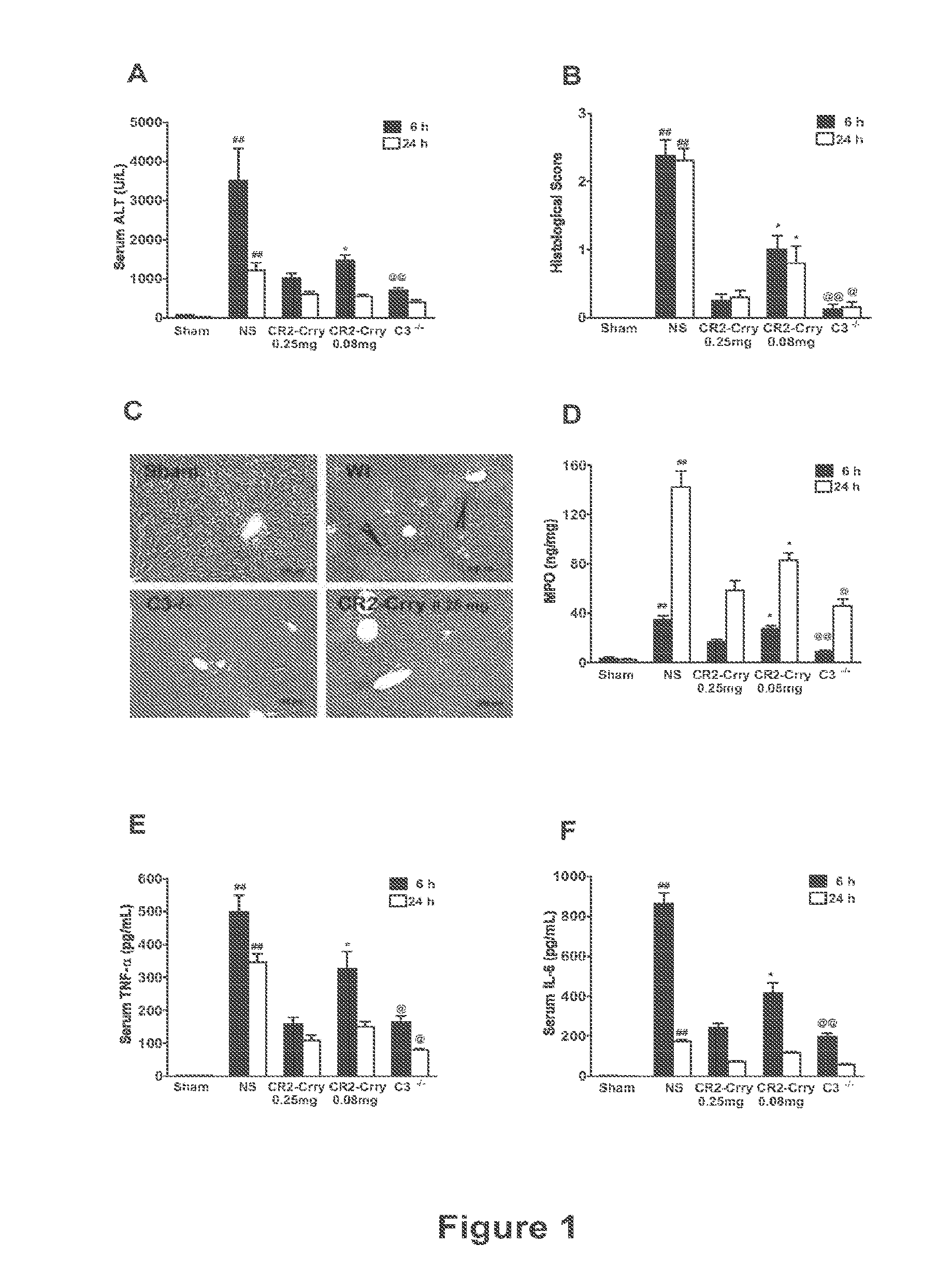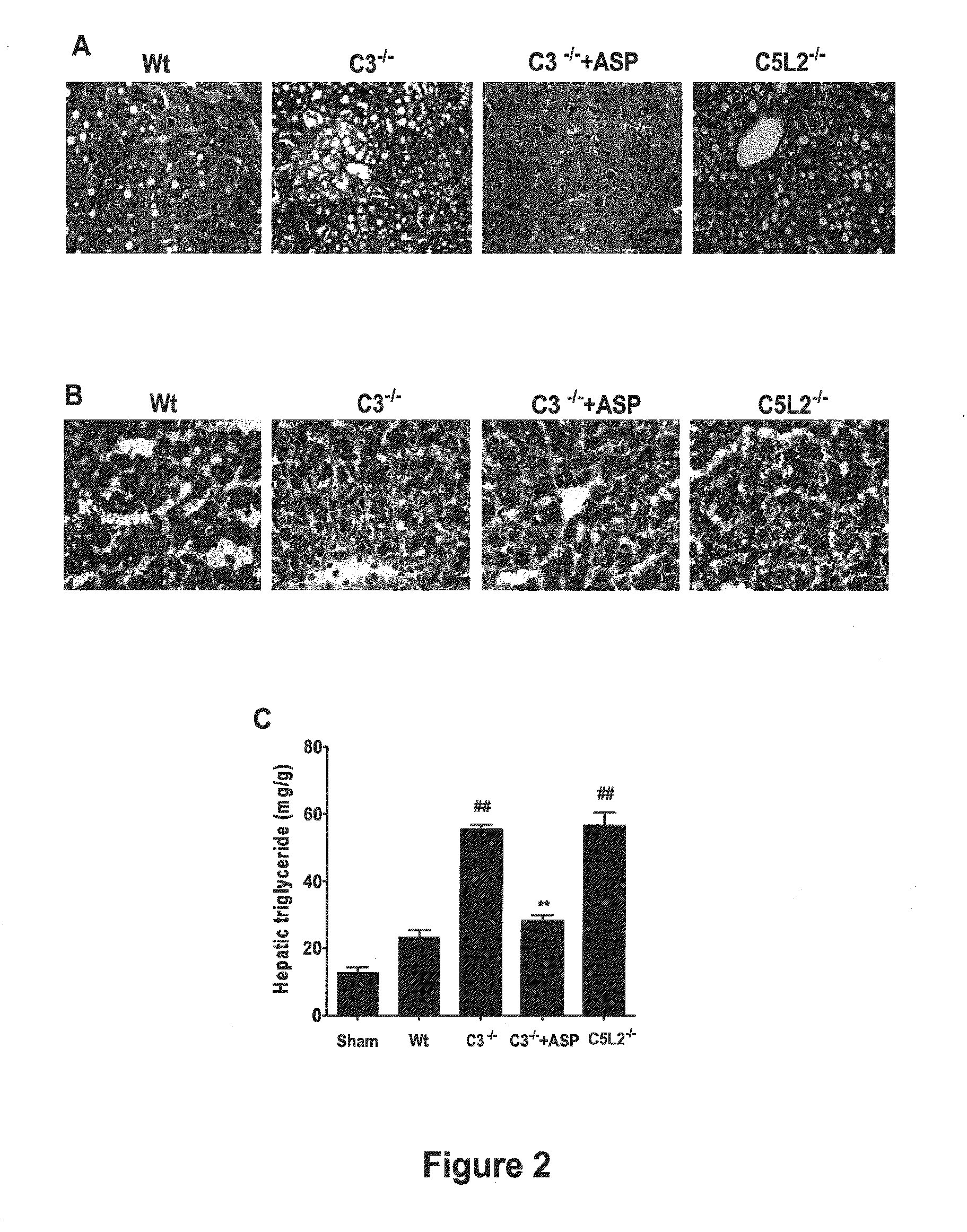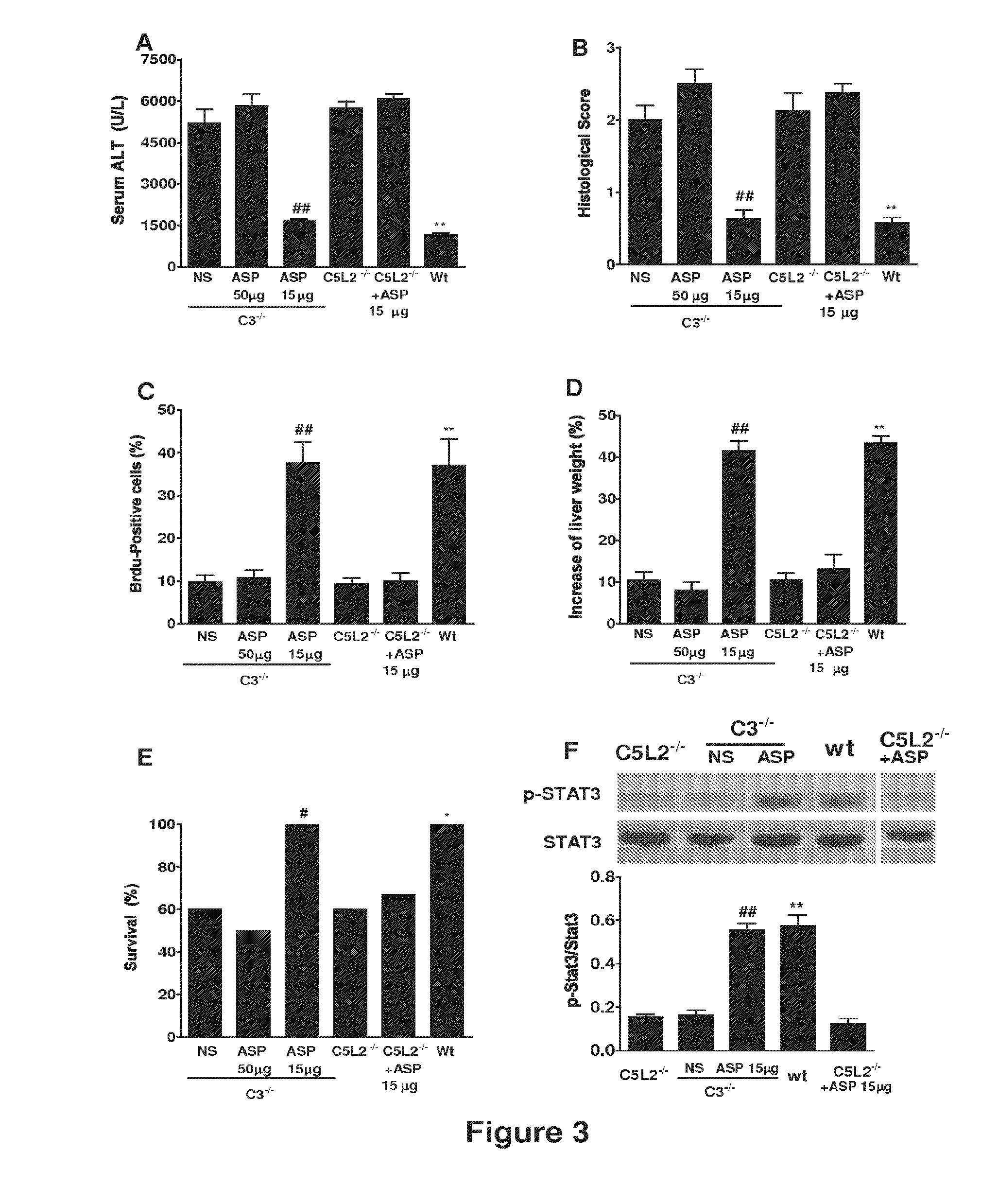Methods of stimulating liver regeneration
a liver and liver technology, applied in the direction of antibody medical ingredients, peptide/protein ingredients, drug compositions, etc., can solve the problems of high risk of certain procedures, inappropriate and excessive activation of the complement system, cell lysis, etc., to reduce the activation of terminal complement and stimulate liver regeneration
- Summary
- Abstract
- Description
- Claims
- Application Information
AI Technical Summary
Benefits of technology
Problems solved by technology
Method used
Image
Examples
example 1
Complement Inhibition with the Targeted Complement Inhibitor CR2-Crry Improves Liver Regeneration in Mouse Models of Warm Hepatic IRI, 70% PHx, and PHx+IRI
Materials and Methods
[0273]Animal studies. C3− / − mice and wild-type controls were obtained from the Jackson Laboratory (Bar Harbor, Me.). C5L2− / + heterozygous mice were provided by Regeneron Pharmaceuticals Inc., courtesy of Dr. Joseph Sorrentino (Tarrytown, N.Y.) and C5L2− / − and wild-type littermates determined by PCR genotyping. All mice were on C57BL / 6 background and were used when 8-10 weeks old and weighing between 22.5 g-25 g. Mice were fed a pellet diet with water ad libitum and kept on a 12-hour-light / dark cycle. For all procedures, mice were anesthetized with a intraperitoneal injection of 0.05 ml / 10 g body weight of a “ketamine cocktail” consisting of ketamine (13 mg / ml), xylazine (2.6 mg / ml) and acepromazine (0.15 mg / ml) in sterile normal saline. Animals were subjected to one of the following three different procedures:...
example 2
Complement Inhibition with the Targeted Complement Inhibitor CR2-CD59 Improves Liver Regeneration in Mouse Models of Warm Hepatic IRI, 70% PHx, 90% PHx, Ethanol-Induced Liver Injury, and Ethanol-Induced Injury+70% PHx
Materials and Methods
[0298]Animal studies. 8-10 week-old wild-type C57BL / 6 mice, C3 deficient (C3− / −) and CD59 deficient (CD59− / −) C57BL / 6 mice were used in this study. Mice were fed a pellet diet and water ad libitum, and kept on a 12-hour-light / dark cycle. Mice were anesthetized by intraperitoneal (i.p.) injection of 0.05 ml / 10 g body weight of a “ketamine cocktail” consisting of ketamine (13 mg / ml), xylazine (2.6 mg / ml) and acepromazine (0.15 mg / ml) in sterile normal saline. Animals were subjected to one of the following four different procedures: (i) hepatic IRI; (ii) 70% partial hepatectomy (PHx); (iii) 90% PHx; and (iv) ethanol-induced injury followed by 70% PHx.
[0299]Hepatic IRI. Mice were subjected to total warm hepatic ischemia and reperfusion (I / R) as previous...
example 3
Toxicology Studies and Determination of a Human Equivalent Dose
[0315]The pharmaceutical compositions exemplified herein were administered to mice at doses ranging from approximately 3.2 mg / kg to approximately 20 mg / kg.
[0316]Further toxicological studies are performed in mice to determine the no observed adverse effect level—the highest dose level that does not produce a significant adverse effect—in mice, both sham operated and after varying degrees of PHx and toxic injury. Thus, groups of wild-type C57BL / 6 mice are obtained from the Jackson Laboratory (Bar Harbor, Me.) or other commercial source. Mice are fed a pellet diet with free access to water and kept on a 12-hour light / dark cycle. Mice are used at 8-10 weeks old, weighing between 22.5 g-25 g. Mice are placed into groups of an appropriate number (i.e., n=5-10 or more), subjected to IRI, 70% PHx or IRI+70% PHx as described above, then treated with escalating doses of targeted complement inhibitor (e.g., CR2-CD59, CR2-Crry, or ...
PUM
| Property | Measurement | Unit |
|---|---|---|
| concentrations | aaaaa | aaaaa |
| pH | aaaaa | aaaaa |
| pH | aaaaa | aaaaa |
Abstract
Description
Claims
Application Information
 Login to View More
Login to View More - R&D
- Intellectual Property
- Life Sciences
- Materials
- Tech Scout
- Unparalleled Data Quality
- Higher Quality Content
- 60% Fewer Hallucinations
Browse by: Latest US Patents, China's latest patents, Technical Efficacy Thesaurus, Application Domain, Technology Topic, Popular Technical Reports.
© 2025 PatSnap. All rights reserved.Legal|Privacy policy|Modern Slavery Act Transparency Statement|Sitemap|About US| Contact US: help@patsnap.com



